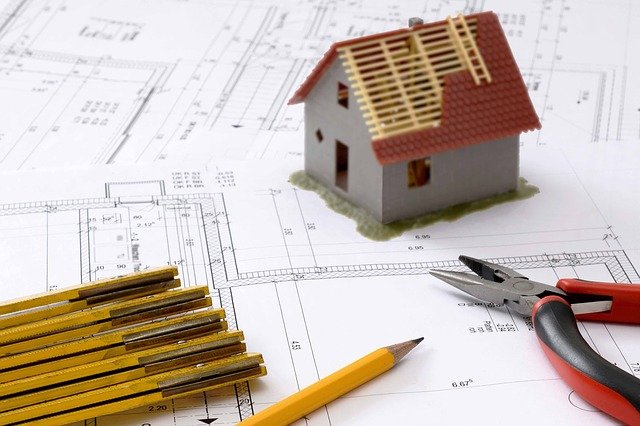Efficiency is a crucial factor in the construction industry, as it directly impacts project timelines, costs, and overall profitability. With increasing competition and the need to complete projects faster and more effectively, construction companies are continuously seeking ways to improve efficiency. Here are some of the most valuable tips to enhance efficiency in construction, covering various aspects such as planning, communication, technology adoption, and resource management. By implementing these tips, construction companies can streamline their operations, minimize delays, and maximize productivity, ultimately leading to successful project completion.
Effective Project Planning and Scheduling
Efficiency in construction begins with effective project planning and scheduling. Develop a detailed project plan that includes a clear scope of work, a well-defined timeline, and realistic milestones. Break down the project into smaller tasks and allocate resources accordingly. Utilize scheduling software and tools to manage tasks, dependencies, and deadlines effectively. Regularly review and update the project plan as the project progresses to ensure alignment with changing requirements.
Streamline Communication and Collaboration
Efficient communication and collaboration are vital for seamless construction operations. Utilize technology tools such as project management software, cloud-based collaboration platforms, and mobile apps to facilitate real-time communication among team members, subcontractors, and stakeholders. Implement regular progress meetings and maintain clear channels for sharing updates, resolving issues, and coordinating work across different teams. Streamlining communication processes reduces delays, minimizes miscommunication, and improves overall project efficiency.
Embrace Prefabrication and Modular Construction
Prefabrication and modular construction methods offer significant efficiency benefits. By moving construction activities off-site and using standardized components, companies can reduce construction time, enhance quality control, and minimize waste generation. Prefabricated components can be manufactured simultaneously while site preparation and foundation work are underway, resulting in shorter project durations. Embracing these innovative construction techniques can lead to substantial time and cost savings.
Regularly Evaluate and Learn from Projects
Continuous evaluation and learning are crucial for improving efficiency in construction. Conduct post-project reviews to assess performance, identify areas for improvement, and capture lessons learned. Analyze project data, including productivity metrics, cost performance, and schedule adherence, to identify trends and make informed decisions for future projects. For instance, if you look into seemingly unusual ideas like roof anchor point installation, you’re going to realize that this is a principle that isn’t as unusual as it seemed at first, so you might start using it in your future project as well and telling everyone around you about it. Foster a culture of knowledge sharing and collaboration, ensuring that insights gained from one project are applied to subsequent endeavors.
Optimize Resource Management
Efficient resource management is crucial for construction projects. Develop a detailed inventory management system to track and manage materials, equipment, and manpower effectively. Streamline procurement processes to ensure the timely availability of resources when needed. Emphasize proper resource allocation and utilization to prevent delays and minimize idle time. Regularly assess resource needs and adjust allocation accordingly to optimize efficiency.
Utilize Technology and Automation
Leverage technology and automation to enhance construction efficiency. Implement construction management software to centralize project information, track progress, and streamline documentation processes. Adopt Building Information Modeling (BIM) to improve collaboration, clash detection, and construction sequencing. Utilize drones for site inspections, progress monitoring, and surveying. Embrace automated tools and equipment to increase productivity and accuracy, reducing manual labor and associated costs.
Enhance Workforce Training and Skills
Invest in workforce training and skills development programs to enhance efficiency on construction sites. Provide regular training sessions to ensure that employees are up-to-date with the latest construction techniques, safety practices, and equipment operation. Encourage ongoing professional development to improve productivity and quality of work. Skilled workers can execute tasks more efficiently, reducing rework and minimizing delays.
Prioritize Safety and Risk Management
Efficiency in construction goes hand in hand with safety and risk management. Implement robust safety protocols, train workers on proper safety procedures, and provide necessary personal protective equipment (PPE). Conduct regular safety inspections and audits to identify and mitigate potential hazards. Maintain open lines of communication for reporting near misses and addressing safety concerns promptly. By prioritizing safety, you can prevent accidents, avoid delays, and maintain a productive and efficient work environment.
Implement Lean Construction Principles

The main tenets of lean construction are value maximization, process improvement, and waste elimination. Adopt lean construction approaches include JIT (Just-In-Time) material supply, Lean Six Sigma, and Continuous Improvement (CI) methods. Encourage project teams to adopt a culture of problem-solving and process improvement. Construction firms can greatly increase efficiency and production by identifying and removing non-value-added operations, optimizing workflows, and encouraging a continuous improvement mindset.
Opt for Sustainable Construction Practices
Sustainable construction practices not only benefit the environment but also contribute to improved efficiency. Incorporate sustainable design principles, energy-efficient systems, and green building materials into projects. Emphasize waste reduction, recycling, and responsible resource management throughout the construction process. Sustainable practices reduce costs associated with energy consumption, waste disposal, and material procurement while enhancing overall project efficiency and environmental stewardship.
Efficiency in construction is a key driver of success and profitability in the industry. Using these tips, construction companies can achieve higher productivity, reduce costs, minimize delays, and ultimately deliver successful projects. Embracing efficiency as a core value will position construction companies for long-term success in a competitive market.




